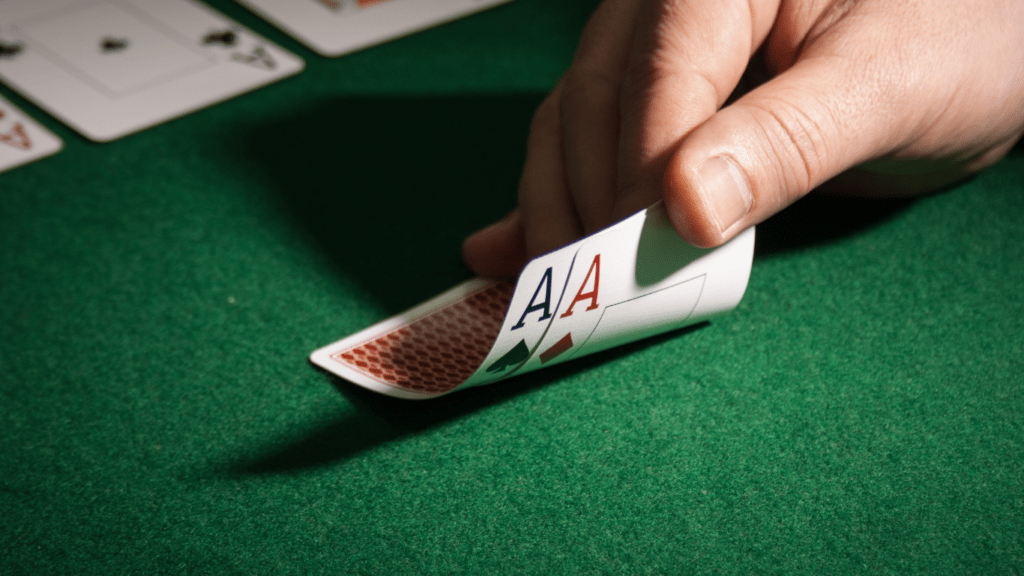Have you ever wondered why some people are more cautious when it comes to taking risks in gambling? In this article, I’ll delve into the fascinating concept of loss aversion and its profound impact on your gambling strategy. As a seasoned expert in the field, I’ve seen firsthand how this psychological bias can significantly influence decision-making at the casino table or in online gaming.
Understanding how loss aversion shapes our behavior can provide valuable insights into why we tend to prefer avoiding losses over acquiring equivalent gains. By exploring the intricate interplay between risk, reward, and the fear of losing, we can unlock key strategies to optimize our approach to gambling.
Join me as we explore the intricate world of loss aversion and discover how it can shape the way we play and wager in various gambling scenarios.
Understanding Loss Aversion in Gambling
Exploring the concept of loss aversion sheds light on how individuals approach gambling. As an expert in the field, I understand the profound impact this psychological bias has on decision-making processes.
It influences players to prioritize avoiding losses over seeking potential gains, shaping their overall strategy. By analyzing the intricate interplay between risk, reward, and the innate fear of losing, valuable insights can be gleaned to refine one’s approach to gambling practices. As we delve deeper into the complexities of loss aversion, it becomes apparent just how crucial it is to consider this factor when formulating effective gambling strategies.
The Influence of Loss Aversion on Decision Making
How Loss Aversion Alters Risk-Taking Behavior
Loss aversion significantly impacts how individuals approach risks in their gambling strategy. It influences decision-making by making people more inclined to avoid losses than to pursue potential gains.
This bias can lead players to make suboptimal choices, such as preferring lower-risk options even if they offer smaller rewards. Understanding how loss aversion alters risk-taking behavior is crucial for developing effective gambling strategies that account for this psychological phenomenon.
Strategies to Mitigate Loss Aversion in Gambling
Exploring strategies to mitigate loss aversion in gambling allows me to optimize decision-making in high-stakes situations. Being aware of the impact of this psychological bias, I can implement specific tactics to counter its effects and enhance my overall gambling strategy.
By incorporating the following strategies, I can counterbalance the tendency to prioritize avoiding losses over seeking potential gains.
- Set Loss Limits: Establishing clear loss limits before engaging in any gambling activity is crucial. By determining a maximum amount I’m willing to lose and sticking to it, I ensure that emotions influenced by loss aversion don’t lead to impulsive decisions.
- Focus on Expected Value: Emphasizing expected value calculations helps me make rational decisions based on probabilities rather than emotional responses to losses. By evaluating the potential long-term gains of a bet, I can mitigate the short-term impact of loss aversion.
- Practice Bankroll Management: Implementing proper bankroll management techniques is essential for mitigating the effects of loss aversion. By dividing my funds into smaller portions for individual bets, I reduce the emotional impact of a single loss and maintain a strategic approach to gambling.
- Utilize Stop-Loss Mechanisms: Incorporating stop-loss mechanisms in my gambling strategy allows me to exit a game or bet when reaching predetermined loss thresholds. This proactive approach prevents emotional decision-making driven by loss aversion and preserves my overall bankroll.
- Diversify Betting Options: Diversifying my betting options across different games or markets helps me avoid fixation on individual losses. By spreading my risk and focusing on a variety of opportunities, I reduce the impact of loss aversion on specific outcomes.
Implementing these strategies empowers me to navigate the challenges posed by loss aversion in gambling, enabling a more calculated and strategic approach to decision-making. By proactively addressing this bias, I can optimize my gambling practices and enhance the overall effectiveness of my strategies.
The Psychological Effects of Loss Aversion in Gaming
Exploring loss aversion reveals its strong impact on gambling strategies. It alters decision-making by prioritizing loss avoidance over seeking gains. This bias skews risk assessment, often leading players to favor safer bets with lower rewards.
Understanding loss aversion is pivotal for refining gambling tactics. The psychological effect inclines individuals to avoid losses at the expense of potential gains. This behavior results in suboptimal choices, hindering the pursuit of higher rewards.
Mitigating the effects of loss aversion requires implementing strategic measures. Setting clear loss limits curbs impulsive decisions, while focusing on expected value calculations aids in rational choice-making based on probabilities. Effective bankroll management diminishes the emotional toll of losses, ensuring a more rational approach to gambling.
Adopting stop-loss mechanisms helps players exit games at predetermined loss thresholds, preventing further financial damage. Diversifying betting options is another recommended strategy to reduce fixation on individual losses and spread risk effectively. These tactics enhance decision-making in high-stakes situations, offering a more calculated and strategic approach to gambling practices.



 Margarita Ventura
Senior Sports Betting Analyst
Margarita Ventura is a seasoned sports betting analyst with an impressive track record of success in the field. Known for her sharp analytical mind and meticulous attention to detail, Margarita combines her deep knowledge of sports with advanced statistical techniques to provide readers with reliable, data-backed betting strategies. Her background in sports psychology and analytics allows her to decode trends and offer unique perspectives on betting odds, player performance, and game outcomes. Margarita’s articles have become essential reading for anyone interested in maximizing their sports betting outcomes. At Pro Gamble Genius, she is dedicated to helping readers make educated bets, whether they're new to sports betting or seasoned pros. Margarita’s insights not only enhance readers' understanding of sports betting but also empower them to make confident, calculated wagers.
Margarita Ventura
Senior Sports Betting Analyst
Margarita Ventura is a seasoned sports betting analyst with an impressive track record of success in the field. Known for her sharp analytical mind and meticulous attention to detail, Margarita combines her deep knowledge of sports with advanced statistical techniques to provide readers with reliable, data-backed betting strategies. Her background in sports psychology and analytics allows her to decode trends and offer unique perspectives on betting odds, player performance, and game outcomes. Margarita’s articles have become essential reading for anyone interested in maximizing their sports betting outcomes. At Pro Gamble Genius, she is dedicated to helping readers make educated bets, whether they're new to sports betting or seasoned pros. Margarita’s insights not only enhance readers' understanding of sports betting but also empower them to make confident, calculated wagers.
